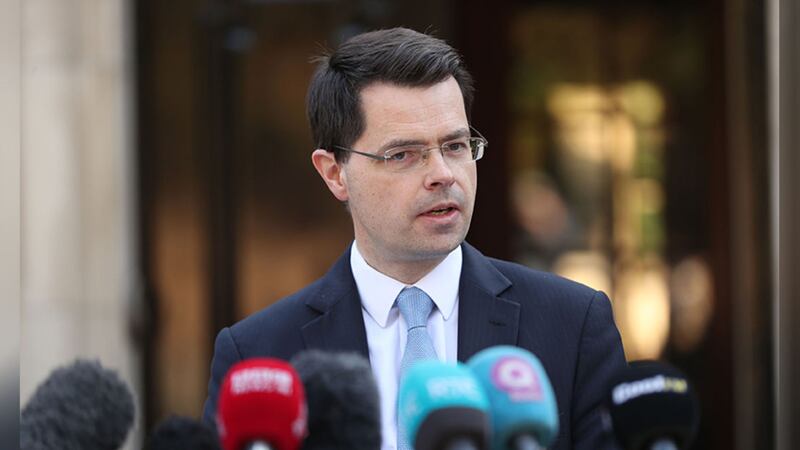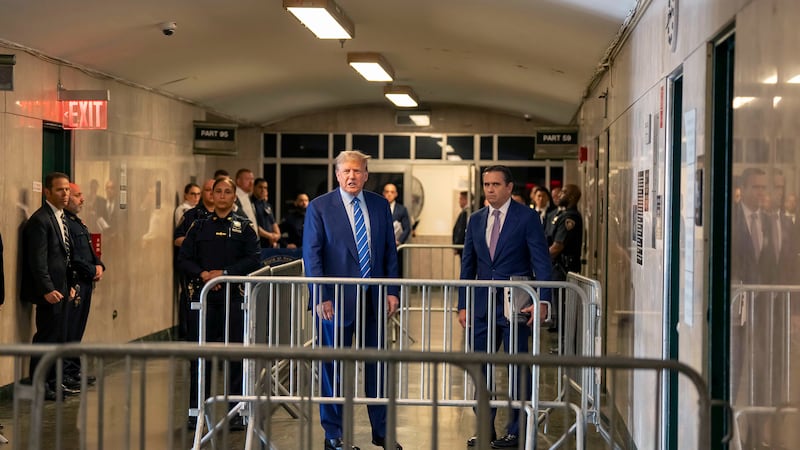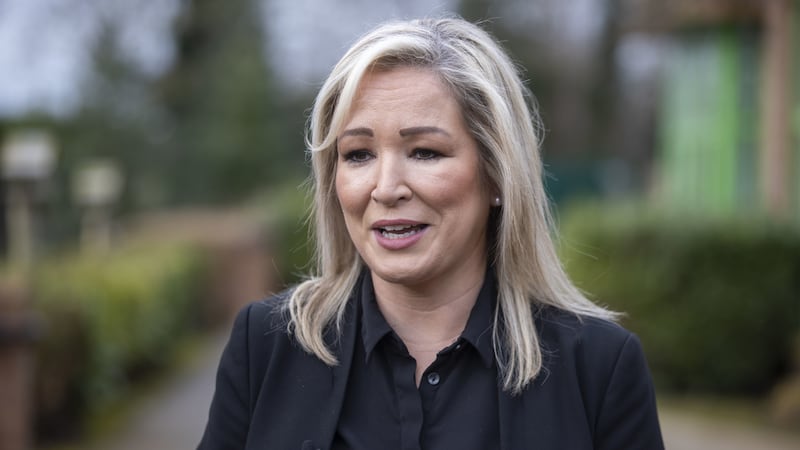The north's political parties have been invited to "intensive" talks in the latest bid to restore the Stormont executive.
The Northern Ireland Office (NIO) has said the talks will begin on Monday and will attempt to secure the formation of a new government and "address the implementation of outstanding issues from previous agreements."
The UK and Dublin governments have said they want the talks to have an agreed agenda and regular round-table meetings.
The parites missed last Monday's deadline for forming a power-sharing executive and Secretary of State James Brokenshire warned "the window of opportunity is short."
Mr Brokenshire said if there was a successful resolution by the time Westminster returned from its Easter recess on April 18 then he would move legislation to enable an administration to be formed without the need for another snap election.
However, if talks fail, he made clear that London would consider direct rule.
In a statement released today, the NIO said: "In a shared approach, the UK government and Irish government have agreed this phase of talks will be best supported by an intensive process to drive progress."
Dublin's Foreign Minister Charlie Flanagan said that as a co-guarantor of the Good Friday Agreement, the Irish Government "is determined to uphold its principles and protect its institutions".
He added: "In the days ahead we will work with all concerned to this end.
"I believe it is critically important to see devolved Government restored and working effectively in the interests of the people of Northern Ireland, in particular in the context of Brexit."
Earlier this week, DUP leader Arlene Foster accused Sinn Féin of putting its "narrow political agenda" above cuts to public services.
"These talks did not fail because of a lack of time, these talks failed because there wasn't a recognition of everyone's mandates and there wasn't a spirit of compromise to get back into the executive," she said.
During the negotiations, it is understood the DUP wanted a 'military covenant' protecting the interests of armed services in the north as part of new legislation that would also offer more protections for both Irish and Ulster Scots speakers.
Sinn Féin's northern leader Michelle O'Neill claimed the DUP did not have "the right attitude".
"Unfortunately, the DUP maintained their position in relation to blocking equality, delivery of equality for citizens - that was the problem," she said.
SDLP leader Colum Eastwood insisted an agreement is possible and urged the parties to "come back to the table".
"We are facing an immediate budgetary crisis. We are days away from the triggering of Article 50. The political impotence cannot continue while the people we represent suffer as a result," he said.
Ulster Unionist MP Tom Elliott said any further talks must have a "proper agenda" focused on "cleaning up Stormont, the management of the executive and the definition of a victim".
Alliance leader Naomi Long said the negotiations had "no momentum" but said agreement could be reached "if people are committed".
"It is unthinkable a project made up of 25 years of hope, time and effort from many quarters could be thrown away so lightly," she said.


